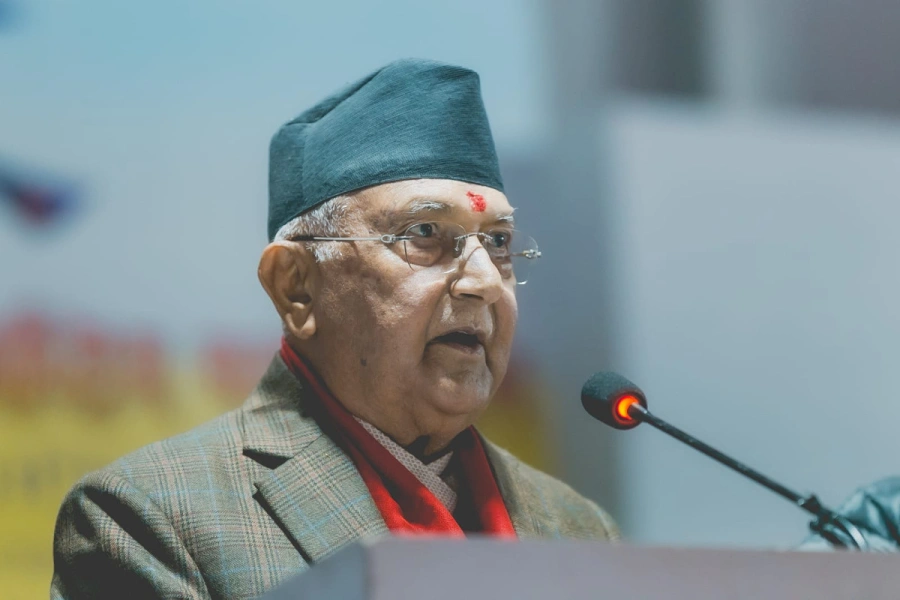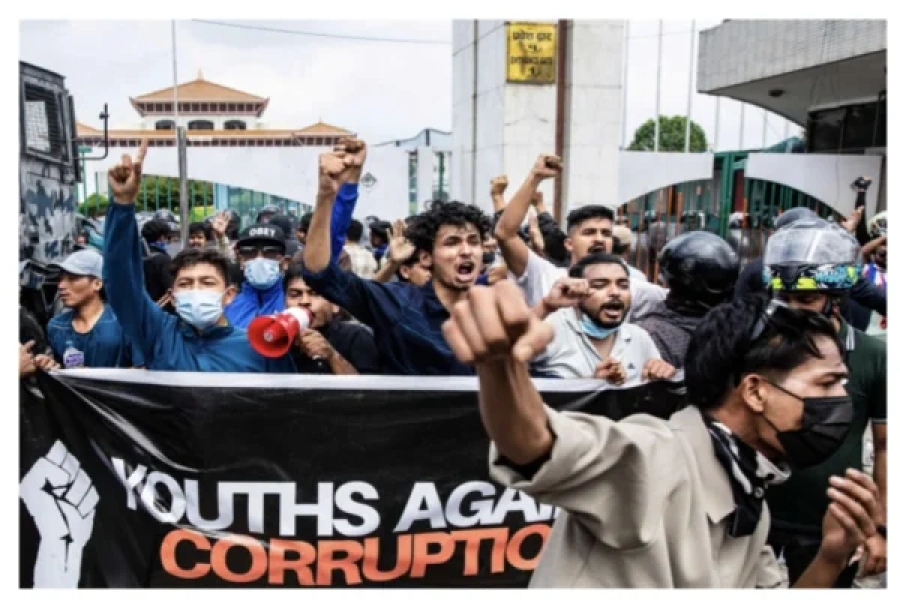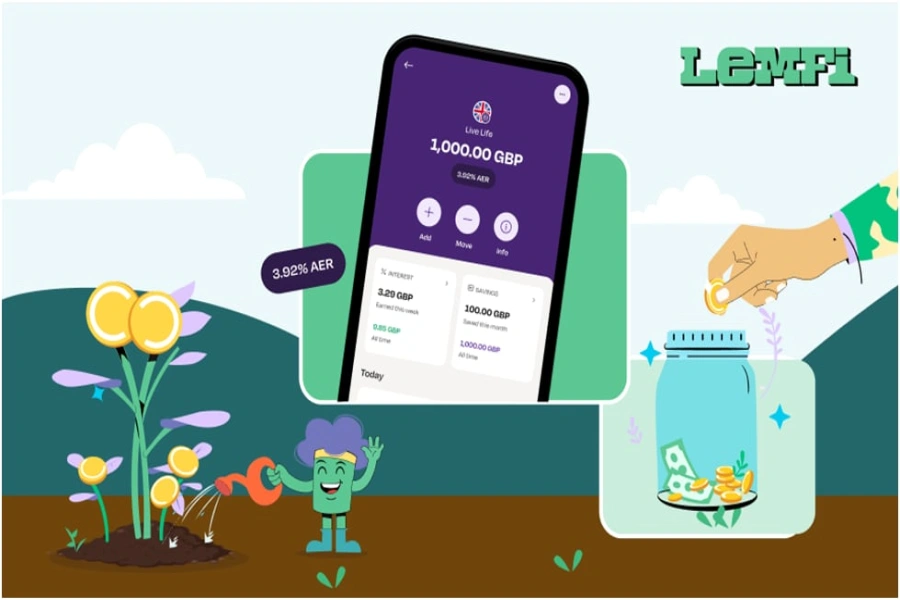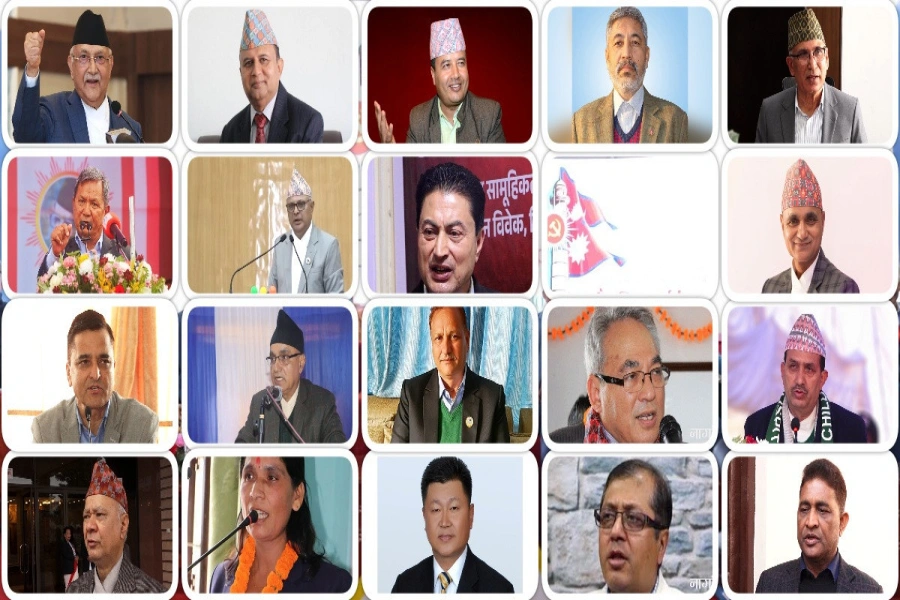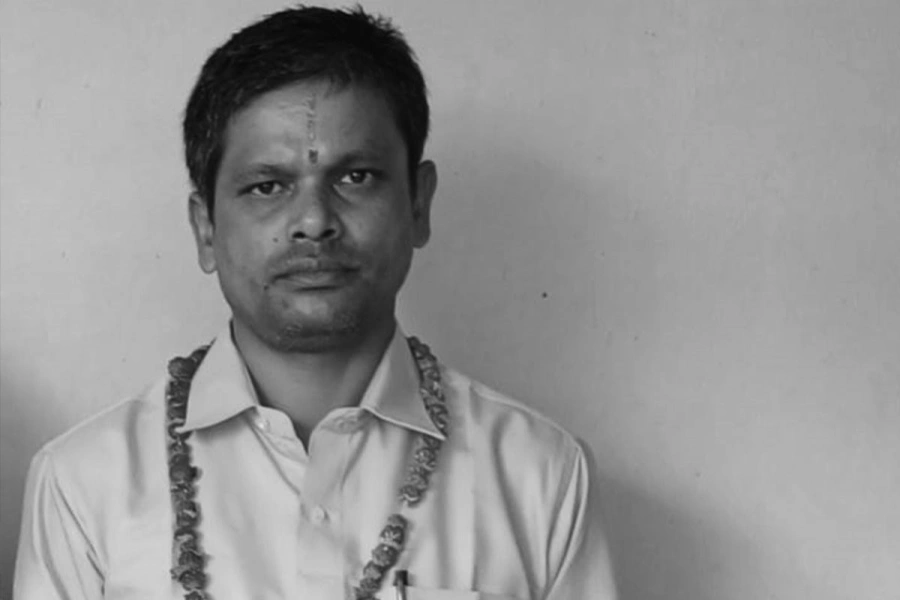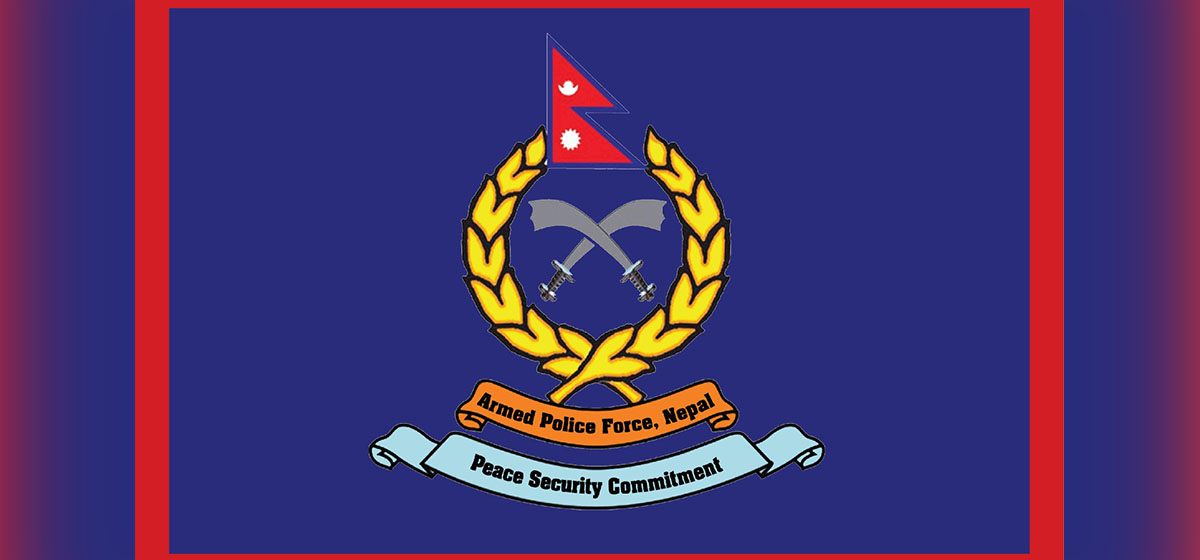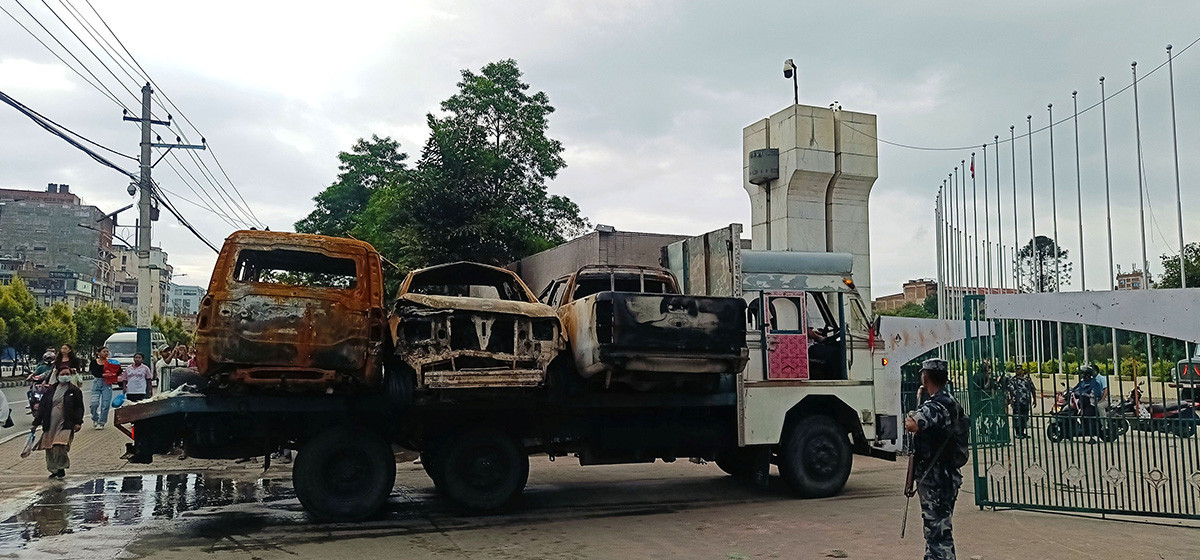Dr Dee (Dianne) Aker is an advisor to the Strategic Peacebuilding Program, Joan B. Kroc Institute of Peace and Justice (IPJ), School of Peace Studies, University of San Diego, USA. In 2001, the IPJ selected Nepal as one of four focus countries for IPJ's Dedicatory Conference. Nepali representatives from various political parties, civil society, media and the human rights community met in San Diego to explore the potential for "peacemaking with justice" and the engagement of civil society in transforming or ending the growing conflict in Nepal. Since then, Dr Dee has led more than 40 visits to Nepal engaging in peace building dialogue from the mainstream leadership to the grassroots people. Dr Dee who has been a part of the peace building process in Nepal for the past 15 years, was recently in Kathmandu to attend the International Peace Conference organized by Nepal Transition to Peace Institute (NTTPI), on the ocassion of the 10th anniversary of the signing of the Comprehensive Peace Agreement in Nepal. The conference was funded by USAID, Swiss Embassy and EU. Akhilesh Tripathi and Krishna Dhungana of Republica Online caught up with Dr Dee for an interview. Excerpts:
Dr Dee, you have facilitated and mediated conflict transformation efforts in Europe and Central America and you’ve also been associated with peace building efforts in Nepal. Can you share with us your experience, especially your Nepal experience?
Thank you for this opportunity to share my experiences. My early work started in Central America, the country of Nicaragua. It was a great learning experience because it was an opportunity to bring people in conflict outside their country to talk for the first time privately and explore where there might be a common ground. The original work in Nepal opened with the same kind of encounter. Leaders from the political parties, human rights commission, and civil society gathered with US President Jimmy Carter in San Diego. That led to our opportunity to begin work with various communities in Nepal – political leaders, security sectors, youth, women, combatants, individuals from different ethnic and caste groups. We proceeded to work with whole communities, as well as parties directly engaged in the conflict. Negotiation and mediation skills were shared as we used our convening power to bring diverse people together. We did this behind the scenes with some parties and with various groups in communities across the country, before the actual peace agreement, as well. Following the CPA, we continued to give skills in leadership, conflict resolution, and communication in various regions including the hills and Terai.
Since conflict doesn’t really end with the signing of an agreement, and the peace building process has to go on, our work has continued. The principles that we work under at the Institute for Peace and Justice (IPJ) is that civil society and ordinary people must be engaged in the process of the determination of what comes next and how inclusion and justice can be advanced for communities and the nation. Leaders and ordinary citizens must be at the decision-making tables together along the way to creating a democracy. And, the work I’ve done here and elsewhere in the world has allowed me to do that.
You created the Women PeaceMakers program. Does it have a presence in Nepal as well? How does it work?
The Women PeaceMakers program is designed to document how women, who have stayed on the ground during conflict and after conflict, are facilitating peace. These are stories of what ordinary people are doing to put civilization back together again after violent conflict. It’s not often covered or captured by the media or the grand powers that succeed the fighting and so-called “peace”. So we bring women who stayed on the ground, who could not or chose not to leave for the US for 3 months and document their stories with professional journalists. We put their stories out to the world to inspire hope and wisdom. People can look them up online at http://peace.sandiego.edu/womenpeacemakers and be encouraged and see the great work women can and must do. We have had a woman peacemaker from Nepal. Radha Poudel, from Chitwan, worked during the conflict in Jumla with both sides in the conflict and succeeded in saving women’s lives. We’ve documented 56 women peacemakers from around the world, at this point, from 38 countries.
It’s already been a decade since the comprehensive peace agreement was signed between the then rebels and Nepal Government. How do you assess the efforts made over these years towards achieving sustainable peace in the country?
It’s very complicated when we talk about peace and peace processes as peace is a process that extends beyond the end of fighting. Too often, expectations ignore the real needs related to moving beyond that moment in time when a comprehensive peace agreement is achieved. Here, indeed, the CPA was a profoundly important step for all the parties. But for various reasons, without going into the politics of it all, it was only a first step for a new Nepal. It was a huge step! But, as time progressed people realized that the peace agreement alone would not deal with all the underlying challenges to an inclusive democratic country based on human rights and justice. The People’s Movement had included people who had felt left out, disenfranchised. Many still feel this way.
Prejudice and social exclusion still need to be addressed. And, it seems to me, that it is harder for people to give enough space to think about how to go back into actual negotiations to advance peace now. Granted this is a different process – one without guns - but it is absolutely essential that people think about what has been accomplished in Nepal’s unique peace process and then move forward in that spirit. There are people’s voices which still need to be heard. I mean various parts of the country and various groups of people still feel left out of this “new democracy.”
1,365 Nepalis among 1.4 million immigrants US plans to deport

The victims of the conflict - both victimized by the state and the then rebels - are yet to get justice. How do you view this?
It’s very difficult. It’s complicating everything right now. I mean, there are two things happening in the country currently. Up to half the people felt left out, in general, from the process of the formation of the country and they feel they don’t have their states and don’t have their recognition or respect. The other is the historical part – those who are waiting for justice from the 10-year war; that’s also very complicated if they do not get justice, respect, some sense of recognition or recovery or peace from/for their losses. It’s just too easy to just slip back into some kind of chaos or some kind of non-support for the government. The government needs to move forward with this. It’s been easy to avoid doing this because the government felt like they were and, in many ways, are moving on, creating the constitution, etc. There were just so many diversions from the TRC and disappeared process. Thus, it’s been difficult but it has to be done. There is no way around it. There is no peace agreement that will last a long time without that action/effort for justice and respect for those who were victimized in the conflict.
Do you believe that Nepal could again see violence if the conflict victims don’t get justice?
It depends on who becomes their spokespersons, who becomes the champions, what kind of champions they are - whether they are peaceful as they seek justice in the months ahead, or whether they are not peaceful but demanding justice these long years later. Given the other complications in the country right now, in terms of the Madhesh, the Terai, and all the other concerning issues of people who have been left out, I think it’s most likely to become violent if things aren’t addressed soon, even before those seeking justice for victims and disappeared. Because so much of that has to do with families and disappointment and just the feeling of lack of confidence in the country, if they have some sort of grievance, it will be hard to have hope and trust. I think there are the issues that are even bigger and closer to causing violence.
There is a popular belief in Nepal that US views Nepal through the Indian lens. As an American citizen, who is aware of what is happening in Nepal, and who knows the US policy for Nepal, do you agree with this?
Not really. Probably it’s because so much support for Nepal has always come out of the fact that there are so many people in the world and USA who love Nepal. At one time we had more people in Congress, who actually experienced Nepal over other countries in South Asia and they had fallen in love. Nepal is a beautiful, independent place in our minds. India is much more commonly known for people who have not traveled in the US, but not for its relation to Nepal. I am aware only that India and China are on the minds of Americans but not related to Nepal and its current development. I don’t think it’s a matter of viewing Nepal through India’s lens. I really think that there is due respect for Nepal as Nepal.
There are also people who say that the US gives importance to Nepal because of China. Had China not been the neighbor of Nepal, the US would not have given any importance to Nepal. Do you agree?
No, I really do not agree with that. My experience is that the US feared Nepal’s 10-year conflict only as a concern about the Maoist ideology. And, I did not agree with the US policies, even on that, when the State Department was so concerned or adamant that something must be done to help Nepal because of the Maoist uprising. I even went to Washington to share my opinion against the idea that the Maoists should be declared “terrorists” in 2003, because that was not the feeling I got here in Nepal and it complicated matters so much. They were an armed party, and certainly not in the tradition of China’s Maoists or terrorists. I feared things might have evolved differently if not seen from the Nepali perspective. So, no, I don’t think that it’s because of China that the US gave importance to Nepal. Nepal actually is its own place, its own respected country and political choices were not through a China lens, but from a concern and love of Nepal lens.
Recently, you had discussions with some Madhesi journalists, activists and politicians. What lessons are you taking home?
The lessons that always come with peace building are that you really have to pay attention to and keep focused on are ongoing/arising that reflect some citizens are not getting equal access: you must deal with the things as they come up. If not, different kinds of conflicts emerge and build up, undermining all good works. These may be different from past conflicts, but no less true for the citizen who lives with them. Here it is a matter of going from the ideological conflict during the Maoist time to disappointment of an exclusory state after the civil war. This is different from the original issue. In these kinds of difficulties after peace agreements, you have to pay attention afresh and discontented people really need to be heard and see that things can be changed for them as well. For example, I must say that the blockade actually did bring attention to many parts of the world, including the United States, because there was lot more going on here than was addressed in the end of the conflict and the CPA. While the United States has become really busy with their own issues in their world, there has been an increase in awareness there too of the plight of many in the Terai - through that blockade/protests - and that should be taken advantage of. It became clearer that there was a new need to move forward and get Terai voices in the system so a democratic nation could advance. I have spoken with the local communities, including women, youth, protest and civil leaders. They are calling for recognition of their plight and desire to be part of Nepal.
You also visited the Terai regions and got an opportunity to study the problems at the grassroots. Are the institutions you are associated with going to launch some programs in Terai?
I think that there is new pressure. There are new interests/awareness that can actually cause INGOs and NGOs to pay attention. I do think that is one thing that came out during the blockade. I feel that people in my field, in peace building, we need to share experience, skills building and negotiation; we need to have everybody in the room, the whole community. We need to have people from every sector engaged when we meet down there- and, we have been meeting down there for eight years - probably the only organization with that kind of history. We have been sure to include as many young leaders as we can, even if there are protesting parties’ leaders, whoever is in the process, so that they can begin and realize that they can actually dialogue with each other. While I can’t speak for what other organizations would do, but there is increased awareness of needs. IPJ shall continue to work here.
Last year, when Nepal promulgated the constitution, the US was quick to welcome it. Do you think that the US government should have waited for some time to welcome the constitution as half of the population was said to be agitated against the constitution?
I can’t speak for or against the US policy, as I am not privy to it. I’ve never been a part of US diplomatic community. But, from my experience and my own prospective having been working here, I felt there should have been more time, generally, for this phase. I do not know all the things that were going into these kinds of decisions. But, I do NOT believe US would have sought to influence this decision. I believe they respected the leadership’s choice. There were Nepali leaders seriously keen to move forward, I think, for various reasons from health to party interests. These people were long involved and needed to act, perhaps. So, I think that while sometimes it’s really important for the US Embassy to reach out and be more active across in different regions (esp. Terai) before they develop support programs. They most likely respected the Nepali process on this constitution issue and did not want to influence it (even if hoping/wishing for this move forward on a constitution). But, of course, I can’t speak to how much access they actually have on everything that was going on at that time. It’s not my arena.
Do you think the victory of Donald Trump in the recently held US election, would affect the Nepal policy of US?
The election of Donald Trump is complicated. Certainly in my field, as one who works in and believes in the peace building world, I do think this might complicate matters. I do think that we do not know yet exactly what he is going to do or be able to do actually, given our system of government. It’s hard to predict, too, because the power is not there yet. I am very hopeful that the American Congress will, because of its advice and consent role, attend in a responsible, global-sensitive fashion and diminish the hate speech and actions. But that’s just my own personal experience. You are asking a citizen who cares passionately about the history and values of the Obama and Clinton administrations.
President-elect Trump has said that he will expel the immigrants from the US and this means an uncertain future for millions of immigrants living in the US currently, including more than 250,000 Nepalese immigrants. What are your views?
I think it’s going to be much harder for him to do the things that he has talked about. I really do; I just don’t see the response of the government coming in the same way. I think he will have some success initially in terms of people from certain areas, but then it will not last. And certainly for Nepal, Nepal is very much often integrated into the community and US universities have a number of Nepali graduates in responsible positions. Whether they stay in the States still, or have gone home to work there with their American degrees, I think that they are a positive presence in the way they have handled themselves. Their interests and their communication skills give them a sincere advantage. Sure, things could become more difficult for immigrants in the US, but not likely for Nepalis.
Will you like to say anything at the end?
I would just like to thank Nepal for being very much a part of my life for 15 years and to share my appreciation of all the people who trusted us and risked, and moved forward, THANK YOU. I would encourage all Nepalis to continue to do that. Nothing happens in one moment, we have to look at this as a process. There is no place that is peaceful forever. But the opportunities right now in Nepal are tremendous, if people would just work on this together. I am certainly glad to help to in any way I can.



